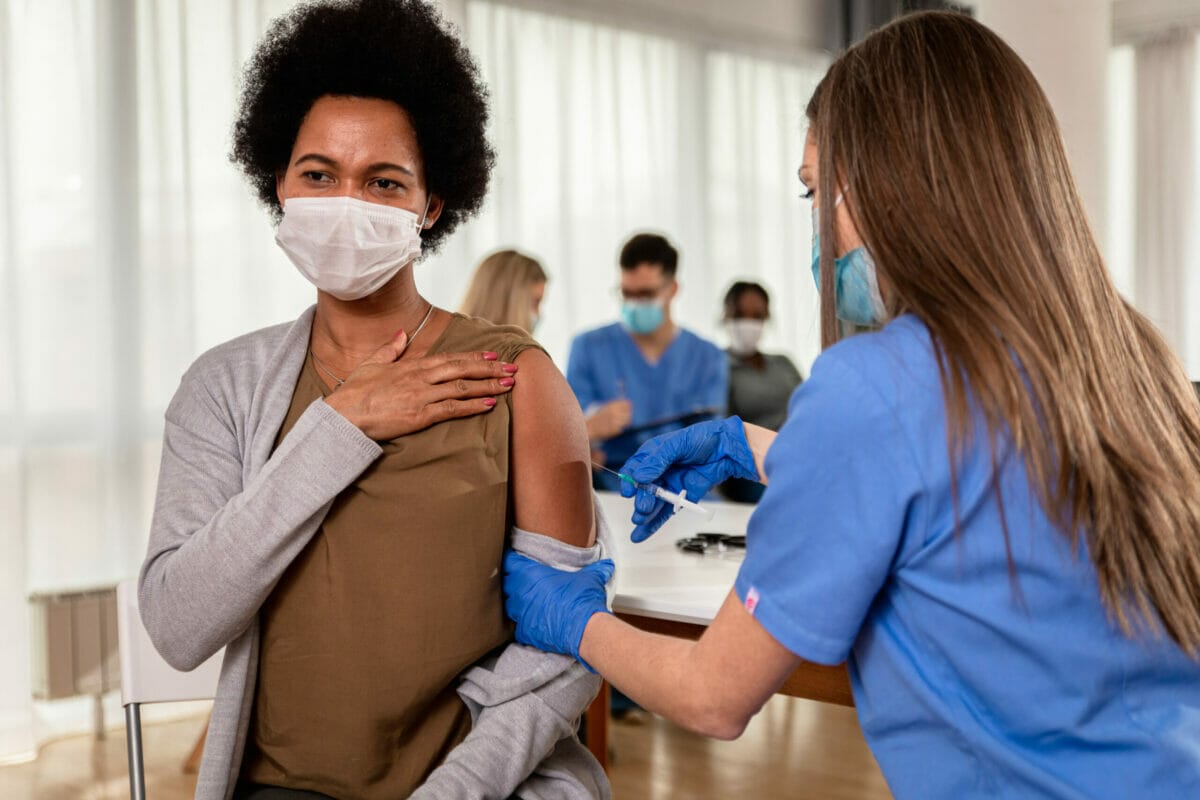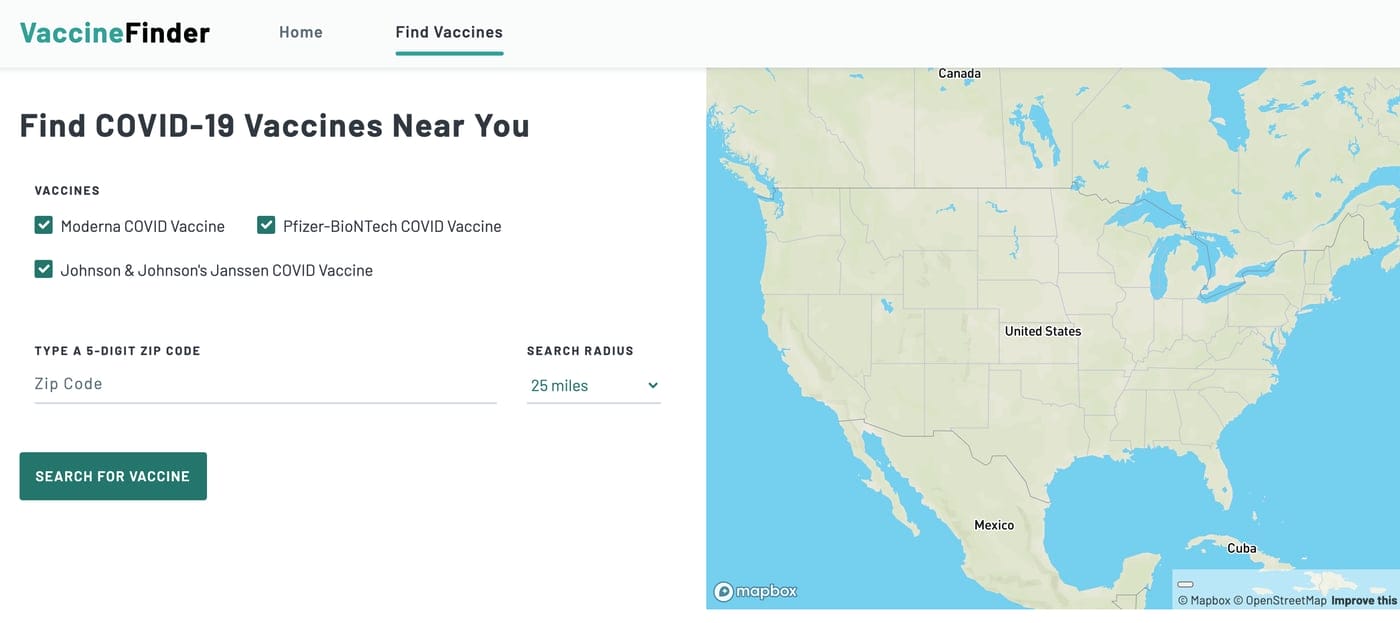
The COVID-19 vaccine is rolling out across the United States, and it’s a key part of returning to a sense of normalcy. Immigrants are able to receive the COVID-19 vaccine, regardless of citizenship status.
Immigrant workers make up 8% of the workforce, and they account for a significant share of essential workers that have been prioritized to receive the vaccine. The vaccine helps prevent COVID-19, and it’s an important tool to help stop the pandemic.
However, in terms of immunization, minority populations remain underserved. According to the Centers for Disease Control and Prevention (CDC), approximately 65% of White people have received at least one dose of the vaccine — in comparison to 10% of Hispanic people, 8% of Black people and 5% of Asian people.
If you are not a U.S. citizen, you might be concerned about getting the vaccine due to questions about documentation and eligibility. Here’s how to get the vaccine and answers to common concerns.
Know your rights with the COVID-19 vaccine
You don’t have to be a U.S. citizen to get the vaccine.
The Department of Homeland Security (DHS) pledged that undocumented immigrants will have equal access to COVID-19 vaccines and vaccine distribution sites. In a statement, DHS said, “U.S. Immigration and Customs Enforcement (ICE) and U.S. Customs and Border Protection will not conduct enforcement operations at or near vaccine distribution sites or clinics.”
This means that vaccination sites are free of immigration enforcement, and you won’t be deported if you get the vaccine.
Here are a few more details about your rights as an immigrant:
- Receiving the COVID-19 vaccine does not count as a public charge. The DHS has stated that COVID-19 treatments or preventative services will not be considered a public charge that would prevent you from becoming a permanent resident.
- You don’t need health insurance to receive the vaccine. Uninsured people are able to receive the vaccine as soon as they are eligible.
- The vaccine is free. The vaccine is provided free of charge, per the CDC — which also means you don’t have to pay any provider fees or copay.
- Documentation isn’t required. Your vaccination provider may ask for some form of documentation, like an ID — but you don’t have to provide proof of immigration status.
- Your personal information is secure. For public health purposes, you might be asked about your medical history and personal information (such as age, address, and job). This data won’t be used for civil, criminal, or immigration enforcement purposes.
Am I eligible to get the vaccine?
Currently, vaccine eligibility varies across the United States because vaccines are being rolled out in a phased approach to prioritize higher-risk populations. President Biden directed states to expand eligibility to all U.S. adults age 16 and older by May 1.
The easiest way to check your eligibility is to view your state or county’s vaccination website. For example, in the state of Washington, the Department of Health maintains a website with a vaccine locator and information about the latest distribution phase.
The Wall Street Journal has also gathered a list of resources and information about vaccine eligibility per state, which is updated weekly.
How do I get the vaccine?

You can get the vaccine at a local vaccine hub or provider, such as a pharmacy. Use your state or county’s vaccine website to find a nearby location, or check out the resources available on the CDC’s website.
You can also use this free online vaccine finder, provided by Boston Children’s Hospital, to find vaccination sites in your area.
Is the vaccine safe?
Yes. There are three COVID-19 vaccines currently available in the United States: Pfizer, Moderna, and Janssen (Johnson & Johnson). All three have been shown to be safe and effective in clinical trials, and millions of people have already received their vaccines.
Here are some answers to some concerns about the COVID-19 vaccine:
- Can the vaccine make me sick with COVID-19? No. None of the vaccines currently being distributed in the U.S. contain the live virus that causes COVID-19. Instead, the vaccines teach your body how to build immunity and fight the COVID-19 virus.
- Will the vaccine alter my DNA? No. The vaccines don’t interact with your DNA at all.
- I’m worried about vaccine side effects. Like any vaccine, some people experience will experience mild side effects after injection, like fever, headache, or swelling at the injection site. Most reactions go away within a few days, according to the World Health Organization (WHO).
- Do I still have to get the vaccine if I’ve already had COVID-19 and recovered? Yes. Even if you think you’ve already had COVID-19, experts don’t know how long natural immunity lasts.
- I’m pregnant or want to become pregnant. Is the vaccine safe? Yes. There’s currently no evidence that the vaccines cause any problems with pregnancy or your ability to have a baby.
- The vaccine development was rushed. How do I know it’s safe? The vaccines from Pfizer and Moderna were released so rapidly because the companies started developing their vaccines early in the pandemic, using a method that has been in development for years. They were able to be distributed within a year because the Food and Drug Administration (FDA) issued an emergency use authorization in response to the pandemic. Studies have found that all three vaccines currently in the U.S. are safe and effective, and they meet the FDA’s rigorous scientific standards.